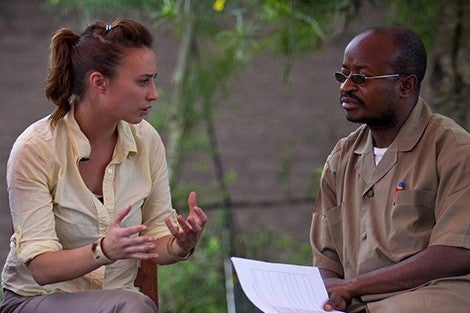The plight of women in the eastern Democratic Republic of the Congo (DRC) has captured headlines, as women have fallen prey to lawlessness and violence in the ongoing conflict that first broke out in 1996. Since its inception, an estimated 6 million lives have been lost and hundreds of thousands of women have been raped or sexually assaulted.
Efforts at aid, though well intentioned, often fail to reflect the needs the women themselves consider to be most critical. Jocelyn Kelly, SM ’08, director of the Women and War Program at the Harvard Humanitarian Initiative, recalled one woman she spoke with in a focus group when she started traveling to the region. “Like many stories in the Congo, hers was one of the most horrific you could imagine. When I asked her what services she would find most helpful, I thought she might say, ‘I would like help paying my hospital bills’ or ‘I would like materials to rebuild my home.’ But without even pausing or thinking, the woman said, ‘I want to become literate. And I want education for my children.’”
Kelly sees her role as communicating the needs of such women to the funders and high-level policymakers who can make change happen. To this end, she splits her time between the violent, crisis-ravaged locations where she conducts field research and cities such as New York and Washington, DC, where she forcefully advocates for the needs of Congolese women with key players such as the World Bank and the United Nations Security Council. “Ideally, we act as a bullhorn, taking the voices of those affected by conflict and crisis into policy and programming circles,” she explained.
Victories are hard-won but deeply satisfying. One example: A report about the stigma endured by Congolese survivors of sexual violence influenced a large government donor’s decision to fund holistic, family-centered programs for the women.
For Kelly, making this type of direct impact keeps her going. “There have been times where on Tuesday, I’ll be on the ground in the DRC, speaking with women affected by the conflict—and on Thursday morning, I’ll be on a panel in Washington, DC, talking about what those women said to me,” said Kelly. “Those are some of the most wonderful moments of my job.”
